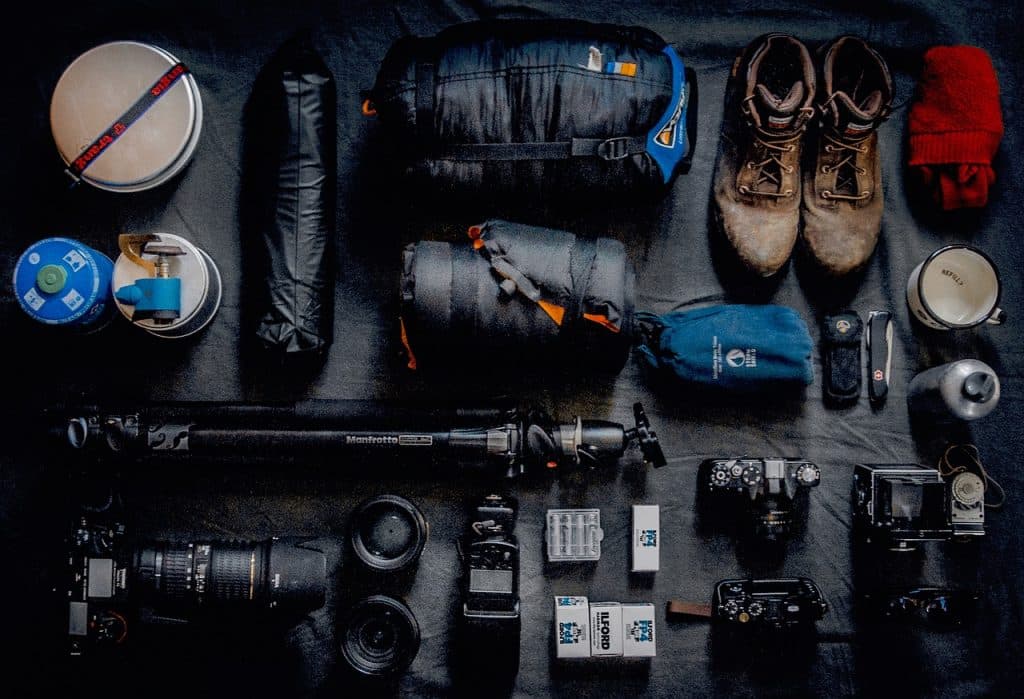Estimated reading time: 6 minutes
Table of contents
When you’re a photographer, the day you’re finally in the market for new camera equipment is an exciting one. You have visions of all the amazing shots you’ll be capturing with your sleek new setup. You get excited about finally having gear that not only meets your current needs but also allows you to grow in the future.
It goes without saying, however, that the purchasing process can be intimidating to say the least. There are so many options out there! You want to be certain that whatever you buy is truly worth the investment you’re about to make.
In this article, I’ll discuss some of the most important (and common) mistakes to avoid when shopping for a new camera or other pieces of photography equipment.
The first mistake is to seek advice from the wrong person
It’s normal and prudent to seek the advice of others before making a major purchasing decision. However, it is critical to obtain it from reputable sources. It’s not enough to simply sound like you know what you’re talking about.
Do they have any idea what they’re talking about? Is this someone who really knows their way around a camera and could be considered an expert in photography equipment? Do they really understand all of the features of the item you’re looking at well enough to give you an informed opinion? You should be able to confidently answer “yes” to all of these questions. You must ensure that the person understands your specific needs and how they may differ from theirs.
Avoid buying something simply because another photographer you know has one or because all the online reviews say it’s the best. Don’t buy solely on the advice of one person, who may or may not be knowledgeable about photography. Ask trusted experts for advice and take it for what it’s worth – it’s a great tool that can help you make a decision. Even the best advice is no substitute for thorough research and comparison shopping.
Mistake #2: Assuming that price equals quality
Yes, high-quality equipment should be regarded as an investment. It’s unquestionably a purchase that should be made with caution, especially if you’re a professional photographer or aspire to be one. However, it is important not to automatically assume that a higher price tag equates to a better item.
Even if money isn’t an issue for you, paying more money doesn’t guarantee that your purchase will meet your requirements. It also does not guarantee the spectacular photos you’ve been hoping for. Even the best photography equipment is only as good as the person taking the photos.
When purchasing a camera, pay less attention to the price and more attention to whether or not the item is right for you. Is it appropriate for your current skill level? Are you familiar with all of the features and tools that it includes? Is it a good fit for the type of photography you do, based on your research? A lot of bells and whistles and a lot of different settings won’t help you if you don’t use them or don’t understand them.
Failure to properly budget is the third mistake
When it comes to many endeavors, proper planning is essential, and shopping for a new camera or photography gear is no exception. Budgeting is a big part of that, and there are a lot of ways people can go wrong in this area.
Many people grossly overestimate what they’ll get in return for their money. A camera that costs a lot of money won’t magically allow a beginner to start taking National Geographic-quality photos. World-class photography skills will not compensate for a low-cost camera incapable of producing professional-quality images.
Many shoppers also overlook the full cost of all the accessories they’ll require when planning their budget. Okay, so you’ve done your research on the camera you’ll need to take your landscape photography to the next level. But, did you remember to think about the lenses you’ll need? What about batteries, tripods, memory cards, and the rest of the equipment? It’s critical to be thorough right from the start.
Mistake #4: Allowing yourself to be distracted by bargains and specials
So you’ve finally decided to enter the photography store and make your purchases. You’ve done your research. You’ve determined which camera is best for your current and future needs. You’ve even chosen the accessories and other tools you’ll require. You’re confident that you know exactly what you’re looking for.
When you get inside, you’ll notice all of the signs advertising special deals on this and low prices on that. Do you lose focus, or do you remind yourself that the item wasn’t really the reason you went there in the first place? Let’s hope it’s the latter.
Never buy a piece of photography equipment simply because it’s displayed under a flashy sign or because a salesperson insists it’s what you really want. If something appears to be far too good to be true, it most likely is. Keep your sights set on the prize, and make certain that you leave the store with exactly what you require.
Mistake #5: Failure to be realistic
When it comes to our interest in photography, most of us have big dreams that we hope will come true someday. However, before you invest your money in those dreams, you should ask yourself whether they are realistic in the near future.
Are you new to photography but already envision yourself traveling the world and earning a lot of money as a travel photographer in a matter of months? Are you shopping because you want to jump right into professional photography with a slew of new, expensive equipment, despite the fact that you’ve never used anything more complicated than the Instagram app on your iPhone?
Make sure you’re not getting ahead of yourself with your expectations by spending a lot of money on new camera gear right now. Shop based on your current needs and skill level, not what you hope they will be “someday.” You’re much more likely to be pleased with your purchases not only now, but also in the future.
If you have any additional gear purchasing advice, please leave it in the comments section below. What is the thought process that you use?
Note: If you want to make some adjustments to the photo just let me know. I can do it for you at a very low cost. You can hire me to edit your photo.
lATEST POST
- What is Midjourney
 Discover the capabilities of Midjourney AI, learn how to effectively utilize the platform, and explore the advantages and disadvantages of the Midjourney AI image generator across its different pricing options.
Discover the capabilities of Midjourney AI, learn how to effectively utilize the platform, and explore the advantages and disadvantages of the Midjourney AI image generator across its different pricing options. - Brand identity elements
 In the vast marketing universe, imagery is pivotal in establishing and nurturing a brand’s identity. A brand’s visual choices are not merely aesthetic decisions but strategic moves that can significantly influence perception and performance. This Picfixs article explores the intricacies of selecting imagery that complements and enhances a brand’s essence, ensuring it resonates with the… Read more: Brand identity elements
In the vast marketing universe, imagery is pivotal in establishing and nurturing a brand’s identity. A brand’s visual choices are not merely aesthetic decisions but strategic moves that can significantly influence perception and performance. This Picfixs article explores the intricacies of selecting imagery that complements and enhances a brand’s essence, ensuring it resonates with the… Read more: Brand identity elements - 100 Best Mountain Captions and Mountain Quotes for Instagram
 Ready to scale new social media heights? Look no further than this treasure trove of 100 exhilarating captions and quotes, handpicked for your Instagram mountain posts!
Ready to scale new social media heights? Look no further than this treasure trove of 100 exhilarating captions and quotes, handpicked for your Instagram mountain posts! - Symmetry in Photography: A Creative Approach with Examples
 Delve into the enchanting realm of symmetry in photography as we showcase mesmerizing examples on our website. Experience the allure of perfectly mirrored images!
Delve into the enchanting realm of symmetry in photography as we showcase mesmerizing examples on our website. Experience the allure of perfectly mirrored images! - 11 Quarantine Photoshoot Ideas to Try at Home for Amazing Photos
 Looking for unique photoshoot ideas during quarantine? Explore the 11 creative suggestions that will help you capture unforgettable moments at home.
Looking for unique photoshoot ideas during quarantine? Explore the 11 creative suggestions that will help you capture unforgettable moments at home.
RELATED LINK


